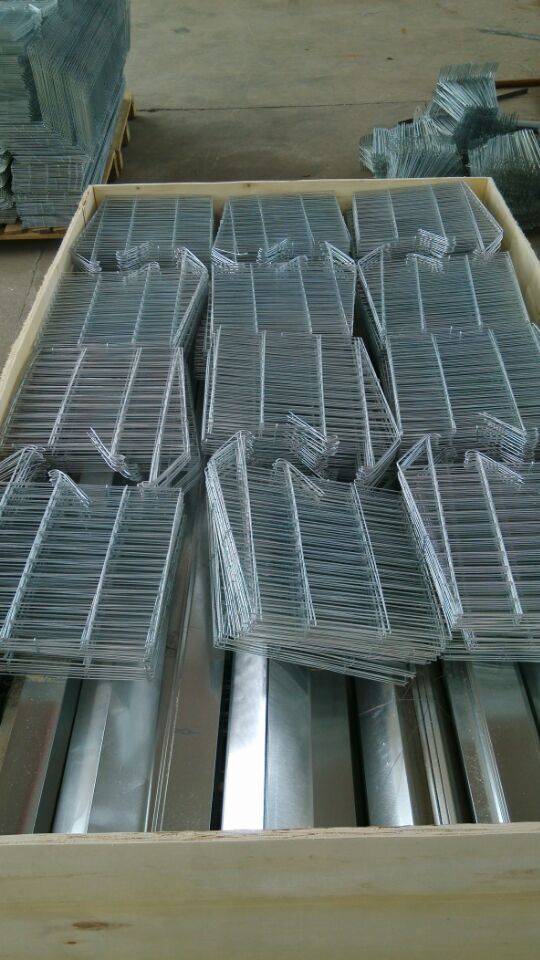Innovative Poultry Farming Cages for Enhanced Production and Healthy Livestock Management
Dec . 09, 2024 21:15 Back to list
Innovative Poultry Farming Cages for Enhanced Production and Healthy Livestock Management
The Importance of Cages in Poultry Farming
Poultry farming is an essential segment of the agricultural sector, providing a significant source of meat and eggs that feed the global population. As demand for poultry products continues to grow, there is a pressing need for farmers to adopt efficient and humane practices. One of the most critical aspects of poultry farming is the use of cages, which can greatly influence the welfare of the birds, the efficiency of production, and the overall sustainability of farming operations.
The Need for Cages in Poultry Farming
Cages serve several important functions in poultry farming. Primarily, they provide a controlled environment that helps to protect birds from external threats such as predators, parasites, and harsh weather conditions. Moreover, cages can enhance biosecurity by reducing the risk of disease transmission among flocks. Given that poultry can be susceptible to various pathogens, maintaining a clean and safe habitat is crucial for their health and productivity.
Another significant advantage of using cages is the efficient use of space. Poultry farming often occurs in areas where land is limited or expensive. Cages enable farmers to raise a larger number of birds within a smaller footprint, maximizing production capacity and, ultimately, profitability. This density ensures that farmers can meet the growing demand for eggs and meat while minimizing the ecological footprint associated with poultry production.
Welfare Considerations in Caged Systems
While there are many advantages to cage systems, it is essential to address the welfare of the birds. Over the past few decades, there has been increasing scrutiny on the conditions in which poultry are kept. Concerns regarding animal welfare have led to debates about the ethics of using battery cages, particularly for egg-laying hens. Critics argue that confined spaces restrict natural behaviors such as nesting, foraging, and social interaction, which can lead to stress and health issues in birds.
In response to these concerns, many farmers are transitioning to enriched cage systems. These cages provide additional space and features such as perches, nesting boxes, and scratching areas, allowing birds to express more natural behaviors while still benefiting from the protective aspects of caging. Research indicates that enriched environments can enhance the welfare of hens, leading to improved productivity and better-quality eggs.
cages for poultry farming

The Role of Technology in Caged Poultry Systems
With advancements in technology, modern cage systems are becoming increasingly sophisticated. Automation in feeding, watering, and waste management can enhance efficiency and reduce labor costs. Smart sensors can monitor environmental conditions, ensuring optimal temperatures and humidity levels, which are crucial for the birds' health. Additionally, innovations in cage design, such as vertical farming systems, are emerging, allowing for even greater space optimization and sustainability.
Moreover, these technologies can help farmers make informed decisions regarding flock management. Data analytics can be utilized to track bird health, growth rates, and egg production, helping farmers to optimize their operations and improve overall efficiency.
Sustainability and Future Directions
The poultry industry is facing significant pressure to improve its sustainability practices amidst the challenges of climate change and resource limitations. Caged systems, when managed properly, can contribute to sustainable farming by maximizing production efficiency and minimizing land use. However, there is a critical need to balance these benefits with the welfare of the birds.
Moving forward, the poultry industry must embrace a holistic approach that prioritizes the well-being of birds while also considering environmental impact and economic viability. This could involve investment in research to develop more humane cage systems, better feed formulations to reduce waste, and alternative farming practices that prioritize animal welfare.
In conclusion, while cages remain a vital component of poultry farming, it is essential to continuously evaluate and improve the systems in place. By doing so, farmers can ensure that they meet the demands of consumers for high-quality poultry products while also adhering to ethical standards and sustainability goals. The future of poultry farming will undoubtedly depend on innovation and a commitment to creating a more balanced relationship between agricultural practices and animal welfare.
-
Automatic Feeding Line System-Pan Feeder Nipple Drinker|Anping County Yize Metal Products Co., Ltd.
NewsJul.29,2025
-
Hot Sale 24 & 18 Door Rabbit Cages - Premium Breeding Solutions
NewsJul.25,2025
-
Automatic Feeding Line System Pan Feeder Nipple Drinker - Anping County Yize Metal Products Co., Ltd.
NewsJul.21,2025
-
Automatic Feeding Line System Pan Feeder Nipple Drinker - Anping County Yize Metal Products Co., Ltd.
NewsJul.21,2025
-
Automatic Feeding Line System - Anping Yize | Precision & Nipple
NewsJul.21,2025
-
Automatic Feeding Line System - Anping Yize | Precision & Nipple
NewsJul.21,2025






